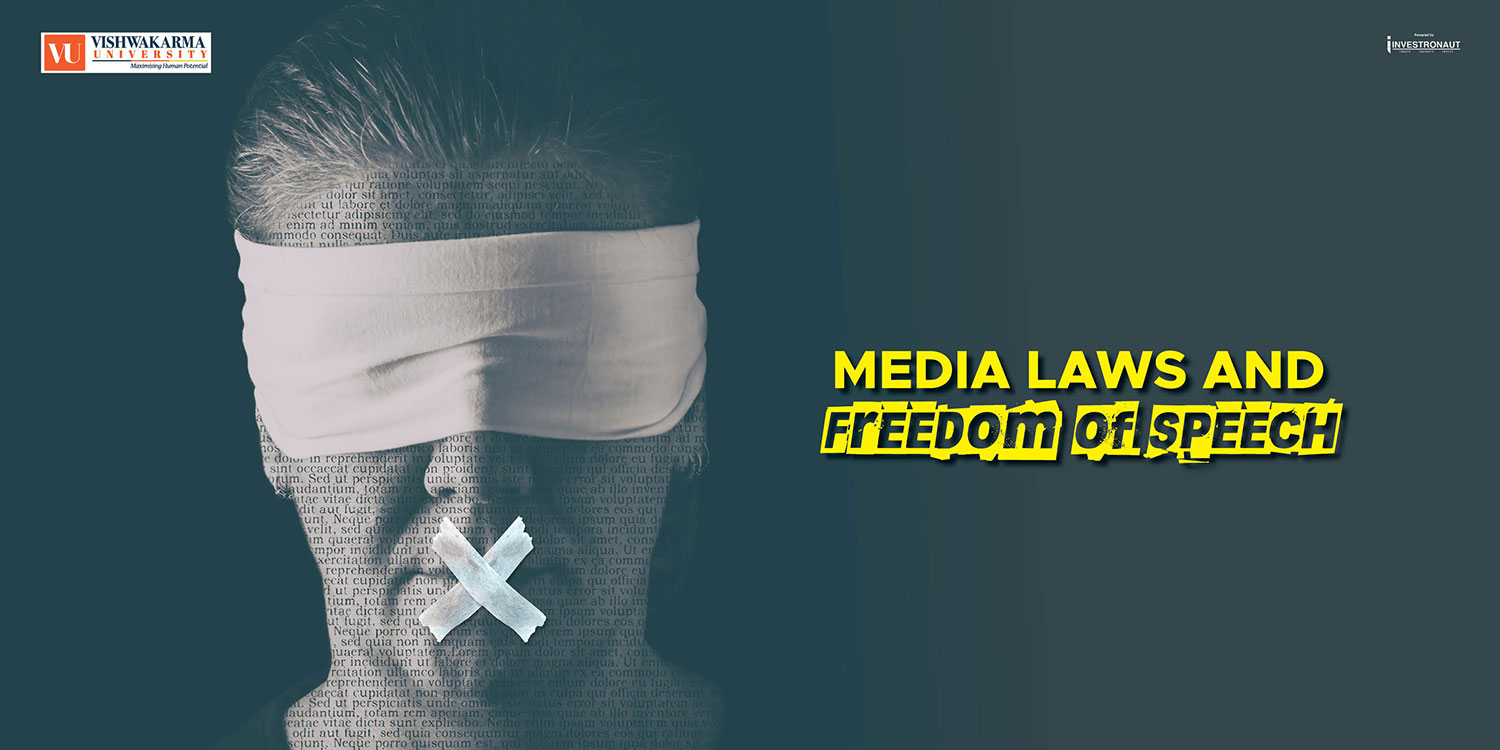
Media Laws and Freedom of Speech
Tweet. Post. Express - whether it be in print or digitally and no one can harm you. But this wasn't so before 2015. In 2015, in a landmark judgement the Supreme Court struck down the controversial section 66A of the Information and Technology Act, 2000 which allowed the state to arrest people for posting offensive content. The incident that led up to this judgement was when in 2012, two young girls were arrested when one of them wrote a Facebook post criticizing the bandh following the death of Shiv Sena leader Bal Thackeray, while the other one ‘liked’ it. The incident raised critical questions about the freedom of expression in the country. What resulted was that ‘legally’ one could express themselves without fear of retribution.
There is a whole framework of Media laws in India that affect our lives directly or indirectly. These laws are closely tied up with our fundamental right of freedom of speech, enshrined in the Constitution of India under Article 19(1). Media laws in India encompass all the legal issues related to censorship, copyright, Information Technology(IT) , defamation, broadcasting, privacy, telecommunication, entertainment, advertising and confidentiality in any form of media like TV, film, music, publishing and internet.
Media, often called as the fourth pillar of democracy is an important institution in a democratic set up where conflicting ideas can be debated. A critical press is the watchdog of a thriving democracy. It needs to be protected at all times. In 1950, ‘we the people’ of India gave ourselves the security of a Constitution which protects our fundamental right of speech amongst other rights. But free speech isn't absolute in India. Article 19 (2) that follows prohibits us from circulating content that is not in the interests of the sovereignty and integrity of India, the security of the State, friendly relations with foreign States, public order, decency or morality or in relation to contempt of court, defamation or incitement to violence.
Blurred Boundaries
What constitutes freedom and where do we draw the line? Where does freedom of speech end and laws begin? Laws and freedom of speech often find themselves locking horns, forming an interesting trajectory of events. Most laws are subject to interpretation by the court. What is freedom to one could be offensive to the other. That is why over the years content in the form of books, films, plays, advertisements, speeches etc. has ruffled many feathers leading up to court cases. Courts and establishments have upheld or diluted free speech over the years. Let’s run through some of the defining moments in Indian history where media curbs became the talking point for the freedom of speech.
1977 - Emergency in India from 1975 to 1977 saw censorship in the press. Many noted journalists and opposition leaders had to languish in jails. Films and stage plays felt their share of the heat. The film ‘Kissa Kursi ka’, a satirical take on the emergency, directed by Amrit Nahata was banned and its copies confiscated by the then establishment. Gulzar’s film ‘Andhi’ also met the same fate. The movie said to be based on the relationship between the then Prime Minister Indira Gandhi and her estranged husband, was denied a full release. The film was banned in 1975 after a few months after its release.
1989 - Salman Rushdie’s book- ‘The Satanic Verses’ was banned in India for allegedly hurting the sentiments of Muslims. The book lead to a fatwa against Rushdie by the then Iranian leader Ayatollah Khomeini leading to Salman Rushdie hiding underground for as long as a decade. The ban lead to a widespread debate about the freedom of expression across the world. The amusing part remains that no one in the government bothered to read the book before issuing the diktat.
2015 - Online content though still outside the purview of the censor board in India comes under attack from time to time. ‘AIB Roast’, a comedy show was taken down from Youtube by the company, after charges of obscenity mounted.
2015 - What makes us uncomfortable should be banned! seem to be the criterion of banning content in our country. ‘India’s Daughter’, a documentary made by a British film maker Leslee Udwin after the infamous Nirbhaya rape in Delhi was banned by the government fearing that it might portray India in a bad light.
2017 - The independent online news portal ‘The Wire’ broke the story about the 16,000 times spike in the revenue of BJP President’s son Jay Shaha’s company. The story got considerable traction and was widely read. Shortly after, journalist Rohini Singh and The Wire were slapped with a defamation case. The Wire rejected Supreme Court’s appeal to settle the matter outside the court citing that the article was based on facts and aimed at informing the public. The court later said “There can not be gagging of press” and The Wire does not owe an apology to anyone.
2018 - The Aadhar debate has reached the highest court in the country. The government intends to make it mandatory for something as simple as buying a sim card. It has raised issues of individual privacy and it’s potential misuse. A team of young lawyers are fighting it in the Supreme Court to spread the word that the right to privacy is “non-negotiable”. Their fight will decisively architect Indian lives in the age of unique IDs, technology and machines.
More often than not freedom has to be fought for and fiercely guarded. Freedom of speech is an ongoing debate. It is manifested in every individual decision and the decisions taken by the State for us. Any which way it is a cause worth fighting for. Taken for granted and it slips away in a wink! That is why the envelop has to be pushed everyday. Young law graduates have a lot to contribute to this field. A lot of universities are offering a specialization in Media Laws. Vishwakarma University, Pune has a robust L.L.B and L.L.M. programme. If you passionately feel about the issue, allow yourself a chance master these laws and contribute to a free, unmuzzled and healthy society.
The author of this article, Richa Singh is a content writer with Investronaut. She is a voracious reader and a keen traveller.



